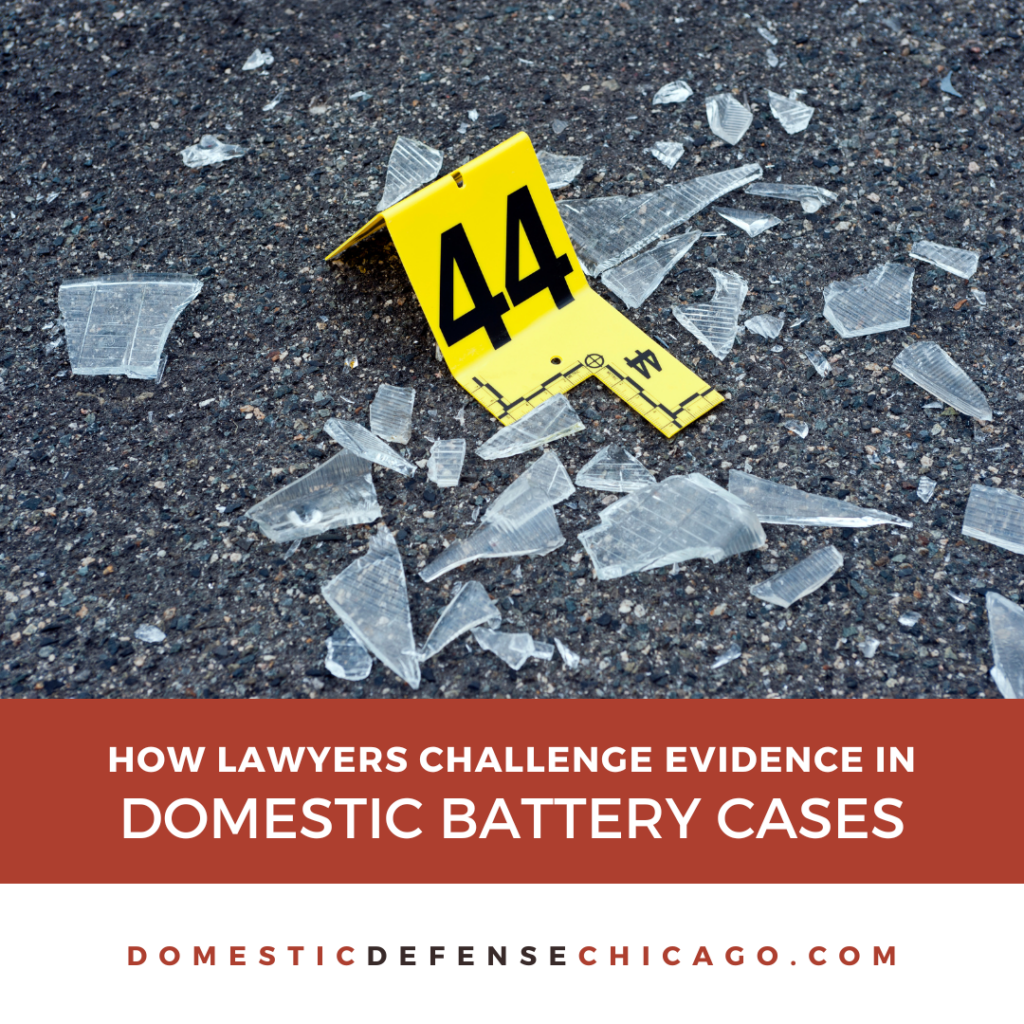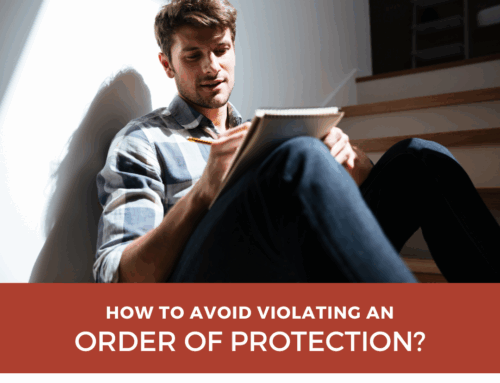Challenging evidence is a crucial part of defending against domestic battery charges. Lawyers use various strategies to question the credibility, relevance, and legality of the evidence presented by the prosecution. Understanding these tactics can help you prepare for your defense and ensure your rights are protected.
How Lawyers Challenge Evidence in Domestic Battery Cases
Lawyers challenge evidence in domestic battery cases by scrutinizing the prosecution’s evidence and using legal strategies to discredit it. This guide explains the following:
- Examining the legality of the evidence
- Questioning the credibility of witnesses
- Identifying inconsistencies and contradictions
- Presenting alternative explanations
- Using expert testimony
Here’s a closer look at each.
Examining the Legality of the Evidence
Lawyers first examine whether the evidence was obtained legally. They ensure that the police followed proper procedures during the investigation and evidence collection. If any evidence was obtained through illegal means, such as an unlawful search or seizure, your lawyer can file a motion to suppress that evidence. This means the evidence cannot be used against you in court. Ensuring the legality of the evidence is a critical step in protecting your rights.
Related: Domestic battery defense information
Questioning the Credibility of Witnesses
Lawyers challenge the credibility of witnesses by examining their backgrounds, motives, and the consistency of their statements. They look for any potential biases or reasons the witness might have to lie or exaggerate. During cross-examination, lawyers ask questions designed to highlight inconsistencies, contradictions, or gaps in the witness’s testimony. Demonstrating that a witness is unreliable can weaken the prosecution’s case and create doubt about the evidence presented.
Identifying Inconsistencies and Contradictions
Identifying inconsistencies and contradictions in the prosecution’s evidence is another key strategy. Lawyers closely review all statements, reports, and evidence to find discrepancies. For example, if a witness’s account of the events differs from the physical evidence or other testimonies, your lawyer can use these contradictions to challenge the reliability of the evidence. Highlighting these inconsistencies can undermine the prosecution’s case and support your defense.
Related: What to do if someone gets an order of protection against you
Presenting Alternative Explanations
Presenting alternative explanations for the evidence is crucial in building a strong defense. Your lawyer will offer plausible scenarios that explain the evidence without implicating you in the alleged crime. For example, if there are injuries involved, your lawyer might argue that they were accidental or self-inflicted. Providing reasonable alternative explanations can create doubt about your guilt and support your defense.
Using Expert Testimony
Using expert testimony is an effective way to challenge the prosecution’s evidence. Experts can provide specialized knowledge that helps explain or refute the evidence presented. For instance, a medical expert can testify about the nature of injuries and whether they are consistent with the allegations. Similarly, a forensic expert can analyze physical evidence, such as fingerprints or DNA, to determine its reliability and relevance. Expert testimony can provide valuable insights that strengthen your defense.
Related: ILDVA
FAQ About Challenging Evidence in Domestic Battery Cases
Check out these commonly asked questions about how lawyers challenge evidence in domestic battery cases. If you don’t see your question here, please call our office and we’ll find you the answers you need.
What Is a Motion to Suppress Evidence?
A motion to suppress evidence is a legal request to exclude evidence from a trial because it was obtained illegally or violates your rights. If the court grants the motion, the suppressed evidence cannot be used against you.
How Can a Lawyer Question a Witness’s Credibility?
A lawyer can question a witness’s credibility by examining their background, motives, and consistency of their statements. They highlight any biases, contradictions, or reasons the witness might have to lie or exaggerate.
What Are Some Examples of Inconsistencies in Evidence?
Examples of inconsistencies in evidence include discrepancies between a witness’s testimony and physical evidence, contradictions between different witnesses’ accounts, and conflicts between the evidence and the timeline of events.
How Do Expert Witnesses Help Challenge Evidence?
Expert witnesses provide specialized knowledge that can explain or refute the prosecution’s evidence. They offer insights into medical, forensic, or other technical aspects of the case that can support your defense and create doubt about your guilt.
Related: What are the differences between aggravated domestic battery and domestic battery?
Can Presenting Alternative Explanations Help My Defense?
Yes, presenting alternative explanations can help your defense by providing plausible scenarios that explain the evidence without implicating you. This creates doubt about your guilt and supports your argument for innocence.
Do You Need to Talk to an Attorney About Domestic Battery Defense?
If you need to talk to a domestic battery defense attorney in Illinois, we’re here to help. Call us at 847-920-4540 now – we’ll be happy to give you a free consultation and talk to you about your options.







Leave A Comment
You must be logged in to post a comment.